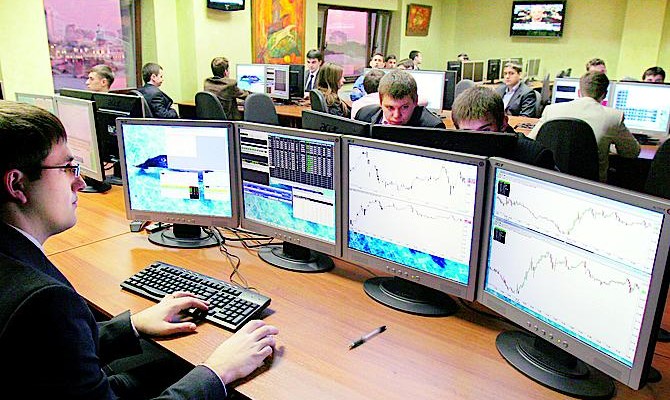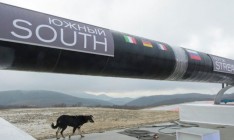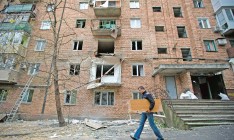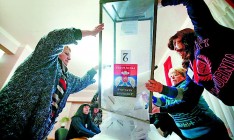Finance
StocksForeign investors lost half of their money invested into the shares of Ukrainian companies

Over the year the general capitalization of Ukrainian companies quoted on foreign stock exchanges dropped by half to US $1.2 bn. Due to the anti-terrorist operation in the East and the annexation of Crimea investors hurried to get rid of cheapening securities. “Aggravation of the military conflict in August and early September provoked a drop of the WIG-Ukraine index (calculated by the Warsaw Stock Exchange based on the quotations of Ukrainian companies – Capital) on September 2 to a historic low of 274.31 points. To this day the index is fluctuating within the range of 280-290 points,” says Head of Strategic Development and IBI-Rating Ihor Andrusyk. For comparison, in February 2011 the value of the WIG-Ukraine index reached 1,089.8 points. Overall, since the launch of the index at the beginning of 2011 and up until yesterday it fell by 71.5%.
Weak link in the chain
Such a sharp drop in the value of Ukrainian securities abroad is largely due to the problems certain companies are facing. Also, the fact that some Ukrainian structures disregarded the rules of the exchange sent out a negative signal to investors. Earlier, WIG-Ukraine was calculated based on quotations of 11 Ukrainian companies, while now there are only 9. In September, the WSE discarded two Ukrainian issuers from the index basket – Vesta and KSG Agro – due to the violation of deadlines for the submission of reports. “This dealt a serious blow to our other companies and was another reason for the decline of WIG-Ukraine, which over nine months of the year dropped by nearly 44%,” said Managing Partner at ICOM Capital Yuriy Kostohlodov.
Since the moment of placement, practically all companies significantly dropped in value. For instance, as of the beginning of September the shares of Agroton dropped by over 92% and Milkiland – 86% since the date of their placement on the WSE. The latter was hit by the prohibition of dairy product exports to Russia, Executive Director of Milkiland Anatoliy Yurkevych said earlier. Russia was the key market for the company. In H1 Milkiland reported a net loss of EUR 27.26 mn against net profit of EUR 5.54 mn over the same period of 2013. In order to find a way out, the company appealed to creditors for restructuring of its debt. In December 2011, Milkiland attracted a US $100 mn syndicated loan.
Over the past 12 months the shares of KSG Agro dropped the most (by 87%), which is a record, Andrusyk noted. Also, the capitalization of KDM Shipping dropped by more than two times (-74%), Coal Energy S.A. (-67%) and Milkiland (-63%).
A similar situation was observed among Ukrainian companies trading on the London Stock Exchange. The shares of Ferrexpo and MHP (Myronivskiy Khliboprodukt) sank 29% and 21%, respectively. “In relatives terms, the decline of capitalization of Ukrainian companies on the LSE was smaller than on the WSE and over the year was -25%,” specified Andrusyk.
Cheap asset
Since the start of the year the shares of Ukrproduct traded on the LSE dropped 25%. The company’s earnings are shrinking due to devaluation, since its products are sold in hryvnia. “In the national currency, sales dropped less significantly – by only 5%. The annexation of Crimea and the combat actions in the east of the country also affected sales in the consumer segment,” explained Managing Director of Univer Investment Group Oleksiy Sukhorukov. Interestingly enough, the price of the company’s shares on the LSE including VAT increased over the past six months. Since the middle of August, the NBU allowed Ukrproduct to also trade its shares on Ukrainian stock exchanges, though at the moment the company’s securities are not quoted on these exchanges.
Overall, since the start of the year, the shares of domestic agrarian companies trading on foreign stock exchanges declined within the range of 1% to 89%. Agrokultura is the only issuer that reported growth: the prices of its shares grew by 35% on the Stockholm Stock Exchange. The reason for this is the program of share repurchases, which remains effective until the end of October,” explains analyst of Eavex Capital Ivan Dzvinka.
For the moment, analysts cannot name any Ukrainian shares that would be attractive for purchasing on foreign exchanges. “The Warsaw pool of Ukrainian companies is represented by agricultural producers, energy companies and one transport company. The choice is scarce as the majority of agricultural producers are going through rough times. In their turn, energy companies are also not the best option on the backdrop of energy problems in Ukraine,” said Andrusyk. If the situation stabilizes and the military conflict is resolved, quotations and the capitalization of Ukrainian companies could definitely improve.






 of the agreement of syndication with Financial Times Limited are strictly prohibited. Use of materials which refers to France-Presse, Reuters, Interfax-Ukraine, Ukrainian News, UNIAN agencies is strictly prohibited. Materials marked
of the agreement of syndication with Financial Times Limited are strictly prohibited. Use of materials which refers to France-Presse, Reuters, Interfax-Ukraine, Ukrainian News, UNIAN agencies is strictly prohibited. Materials marked  are published as advertisements.
are published as advertisements.